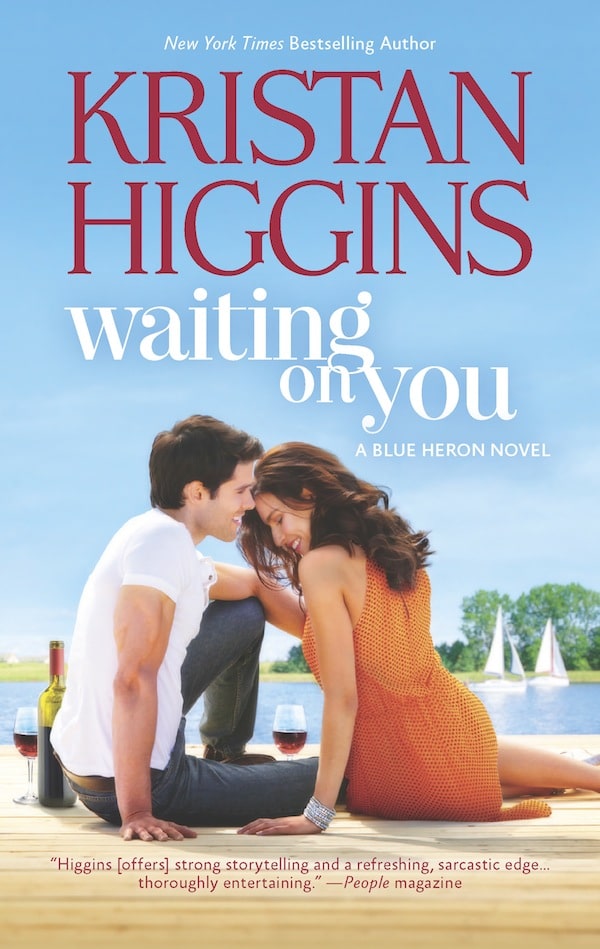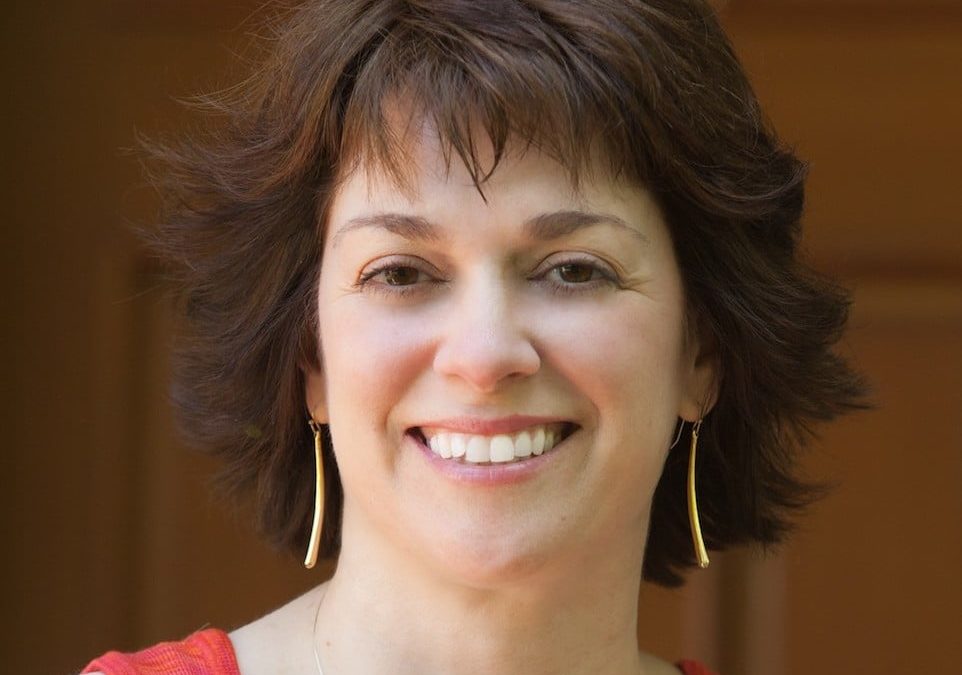
We love when Kristan Higgins graces our pages. She always has great tips for screenwriters and authors. And she’s funny and entertaining—just like her books. Kristan is a New York Times bestselling author of a dozen novels, which are sold on six continents and translated into 20 languages. Her latest book, Waiting On You, is available now. Visit her website!
Whenever I’m writing a book and it starts to lag, I know the reason. It’s because my character is a dope. Below is my list of the mistakes I’ve made when writing my books—my 12th came out this week, and the mistakes I’ve made… well, they’re legion.
1. Clichés
The librarian, the warrior, the free spirit… archetypes are a great jumping off point to help clarify where we want to go with a character. Our hero is a Special Forces type. He went on a mission that, while heroic and noble, somehow went awry. He lost people close to him. He felt betrayed by his government or leaders. He has trouble bonding with people since his unit was killed, but deep down, he’s lonely, and only the feisty heroine can see through his hardbitten exterior.
We’ve all seen that movie and read that book. But what makes that character memorable—a Jason Bourne, for example—is the element of the unexpected. Jason has amnesia. Amnesia Jason has rejected Assassin Jason to the point where he just can’t accept what he’s done. How cool! How different! How about Hannibal Lecter? He’s a ruthless serial killer… and a consultant for the FBI. And an excellent chef.
2. No Suffering
Beware the character who has never suffered. Whatever genre you’re writing, a character with backstory is a LOT more interesting than one without. Something happened to your character that left a mark. A big mark. A mark that’s driven them away from one thing and toward another. It doesn’t have to be as big as Dexter Morgan’s scar—watching Mommy killed by a chainsaw and sitting in a puddle of her blood for two days—but it does have to be basically the worst moment in your character’s life.
Without that scar, you have no fear… and fear is critical to writing a great story. No matter what, your character wants to avoid that scar situation from happening again. Your character has a goal, right?… but dancing around the edges of accomplishing that goal is that fear.
3. Complete Transparency
What would your character hate for the world to know? If your character has nothing to hide, you’ve just eliminated a great source of tension. Look at Game of Thrones. Every character has an ulterior motive and a secret. Who’s Jon Snow’s mommy? Who’s Joffrey’s daddy? What does Tyrion want more than anything else? Every character’s journey is shaped by their desire to keep those secrets.
4. Too Stupid to Live
The zombies are on the loose, biting everyone in sight. But wait… what was that? A noise? Hey, I’m not afraid! I’ll go down to the cellar and check things out. It’s probably just a dog! You’ll see, you silly fraidy cats! Oh, and I’ll leave my crossbow up here.
Obviously characters have to make mistakes. But when they make a real bonehead choice, we lose sympathy for them. Instead, give them a moral dilemma. Both choices are wrong. We all know zombies are on the rampage… someone has to do something. If I’m gonna be the one, and I choose to leave my crossbow here, please let me leave it for a good reason.
5. White Knight Syndrome
Characters who wait around to be rescued by another person, be it the Coast Guard or a cute guy (or both) aren’t very interesting or sympathetic. Granted, I write romance, and finding The One is critical to a happy ending. But at a certain point in all my books, the hero and heroine face life without each other. And it’s not going to be meaningless, empty and bereft. They’ll still have good, full lives.
There’s a big difference between you complete me and you saved me. You complete me, by all means. In As Good As It Gets, Jack Nicholson delivers one of the most romantic lines I’ve ever heard: “You make me want to be a better man.” Not a different man… a better man. At the end of that movie, he’s still Marvin… but he’s better because of the love she gave him.
6. Failure to Grow
We want character arc! We want character arc! In a story like Ocean’s Eleven, there is no character arc. There is plot. Same is true with The Da Vinci Code. There’s just story, the characters are only a vehicle for that plot. But in most books and movies, it’s the opposite. The story is a vehicle for the character, who will have to push themselves out of their comfort zone, risk everything—heart, humiliation, life, reputation, whatever—to achieve their goals, and the true value gained is that change of heart.
If only I could remember not to make all these mistakes while writing my first draft, life would be a lot easier.

Check out our other novel-writing blog posts.
Jessica Brody will consult on your novel and analyze your beat sheet according to the Save the Cat!® principles. Learn More>>
Kristan Higgins
12 Comments
Leave a Reply Cancel reply
You must be logged in to post a comment.










This is so helpful, Kristan. You succinctly summarized all of the necessities for good storytelling. I’m totally printing this out! Thanks for sharing your wisdom and experience. Best of luck with the book!
What a lot of great insights for us to apply to our characters! Thank you, Kristan. I always enjoy your posts here on Save the Cat.
This was great, apart from the part where you say “Look at Game of Thrones”. There is no way I am going to look at that, not even from behind a pillow! It’s far too scary for wimps like me!!
I particularly like number 4. Nothing is worse than a TSTL heroine who does everything she can to screw up her life, to the point that you want to knock her against the wall and say “no, you’ve misunderstood, just TALK to the man, pleeeeeease, and stop messing up”! None of yours have ever been like that, because you give them a life outside the mess-up and the stupidity (see point 5)
Your posts reflect the humor in your books. Thanks for the enjoyable post.
Hmm. It would be fun to see how many you could shovel into one character–a repressed librarian who is too stupid to live and who has never suffered, has no dirty secrets and who’s exactly the same at the start of the book as she is at the end. A secondary character maybe. . . .
Great article Kristan. I love the examples you’ve sighted.
Cited.
:-)
Finally a reason why I could never watch those Ocean’s Eleven, twelve, etc movies…no character development! Thank you, Kristan, for this smart, savvy and thorough examination of why we care….
Well done. I like what you said about how people want to see arc, however in real life I never have seen that much of an arc. It is odd, but the viewer loves to see an arc in others, but they will not do that much of an arc in their own life.
Very insightful article. You are absolutely right about a character who has not suffered; they are not interesting and this is something I need to put into practice.
Thanks for your tips and reminders in your article.
Christy McKee
awesome contribution… thanks for sharing!